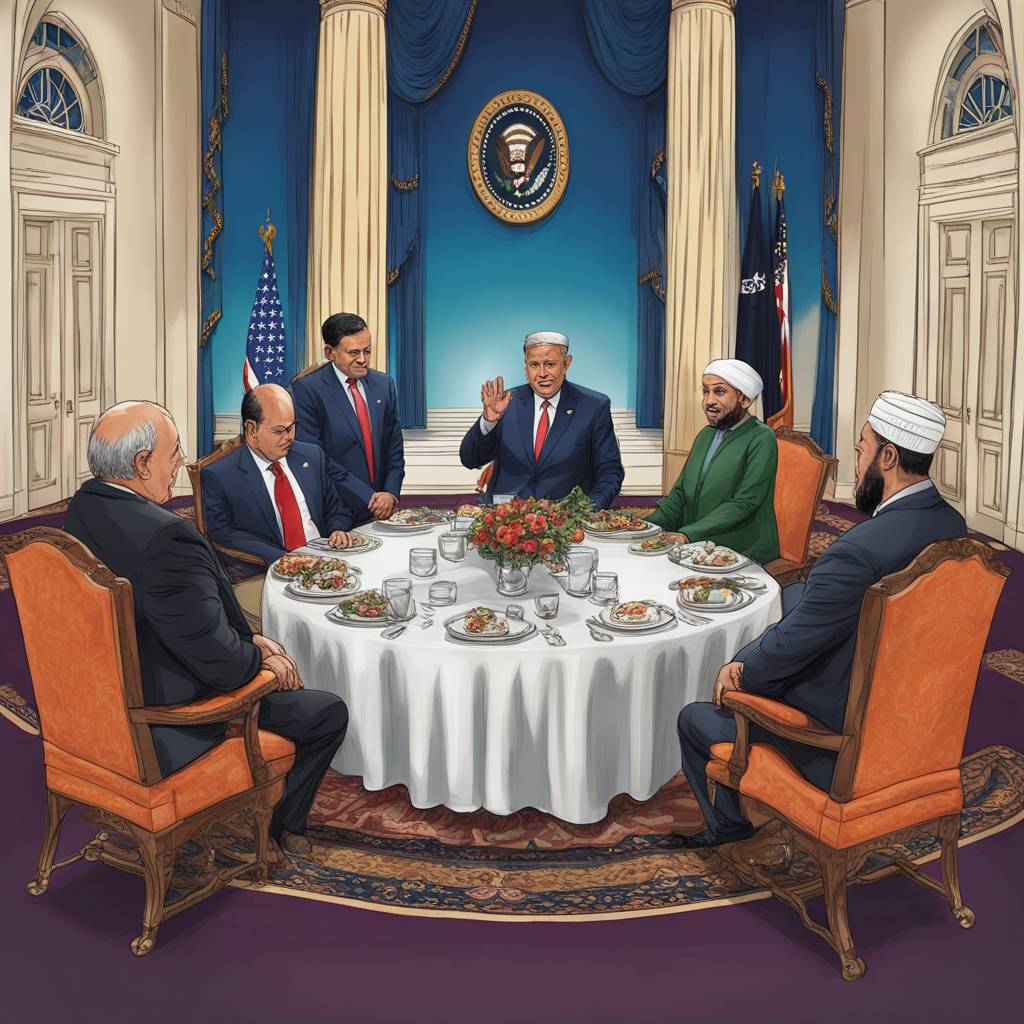The White House has changed plans for President Joe Biden to host an iftar dinner with Muslim community leaders amid the Israel-Hamas war. Instead of the dinner, a policy discussion will be held with senior Muslim administration officials due to pushback from expected attendees who felt it would be inappropriate to raise the humanitarian crisis in Gaza over dinner. Participants showed little interest in eating and celebrating, leading to the decision to hold a meeting rather than a dinner.
Several individuals who were invited to the iftar dinner declined due to frustration with the administration’s support of Israel during the ongoing humanitarian crisis in Gaza. The sentiment among many was that attending the dinner while Palestinians are being killed and starved would be shameful. The scaled-back event contrasts with previous Ramadan observations during the Biden administration, such as a reception for Eid al-Fitr last year that hosted nearly 350 people.
This year’s Ramadan comes as the conflict between Israel and Hamas has led to over 32,000 deaths, with Biden calling for an immediate ceasefire but not explicitly stating that it should be permanent or halting arms provisions to Israel. White House officials have met with prominent Arab American and Muslim leaders in various cities, including a meeting in Chicago with Arab, Muslim, and Palestinian American community leaders, although some declined to attend due to the situation in Gaza.
The handling of the conflict by the administration has caused anger and concern among Arab, Palestinian, and Muslim American communities, as well as presenting political challenges for Biden. The issue is particularly significant in battleground states like Michigan, home to over 200,000 Muslim American voters. During the state’s Democratic primary in February, over 100,000 voters chose “uncommitted” to send a message to the president, and Biden has faced interruptions by activists on the campaign trail.
President Biden will host a meeting with Muslim community leaders to discuss issues important to the community and will still hold a small iftar following the meeting with prayer and a breaking of the fast. Vice President Kamala Harris, senior Muslim administration officials, senior members of the national security team, and fewer than a dozen invited guests are expected to attend the event. Despite the change in plans, the administration continues to honor the Muslim community during Ramadan but has faced challenges in navigating political and humanitarian concerns surrounding the Israel-Hamas conflict.













